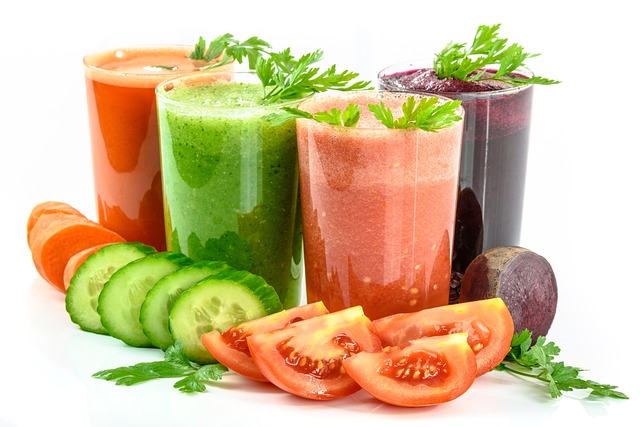A detox for your body can sound like a great idea. Who wouldn’t want to do all they can to remove toxins from their system?
Whether its cucumbers splashing into water, or models sitting smugly next to a pile of vegetables, it’s tough not to be sucked in by the detox industry. The idea that you can wash away your calo(hor)rific sins is the perfect antidote to our social lives submerged in alcohol and fast-food. But before you dust off that juicer or take the first tentative steps towards a colonic irrigation clinic, there’s something you should know:
Detoxing – the idea that you can flush out impurities from your system and leave your organs squeaky clean and raring to go – is a SCAM! It’s a pseudo-medical concept designed to sell you things.
Marketers of detoxification products, diets and supplements claim they can cleanse your system and provide all kinds of benefits: more energy, better digestion, reduced inflammation and, of course, weight loss.
But are our bodies really full of toxins? And do we need help to get rid of them? Here’s the truth behind four detox myths.
Myth: Your body needs help to detox.
Fact: Your body does not need a detox program. It is designed to detoxify itself.
Toxins in your body come in two forms:
- Endotoxins — by products your body makes, such as lactic acid, urea and faeces
- Exotoxins — toxins that come from outside your body. These include chemicals from cleaning products and cosmetics, pollutants from the air or water, and pesticides on food
The liver is our detoxification machine. It’s designed to detoxify.
The most important thing you can do to help your body rid itself of toxins is take care of your liver. That means maintaining a healthy diet, so this important organ doesn’t get overwhelmed.
Myth: A detox can restore health.
Fact: If you overindulge often, that can damage the liver over time. And that’s something no detox can repair.
Fried foods and sugary drinks are difficult for the liver to process, and too much of each of these turn to fat in the liver. If you drink alcohol, that can add more fat to your liver.
It’s definitely good to have non-alcohol days as part of your lifestyle. It’ll probably give you a chance to reassess your drinking habits if you’re drinking too much. But the idea that your liver somehow needs to be ‘cleansed’ is ridiculous.
Also note: The liver breaks down alcohol in a two-step process. Enzymes in the liver first convert alcohol to acetaldehyde, a very toxic substance that damages liver cells. It is then almost immediately converted into carbon dioxide and water which the body gets rid of. Drinking too much can overwhelm these enzymes and the acetaldehyde build-up will lead to liver damage. Moderate and occasional drinking, though, might have a protective effect. Population studies have shown that those who drink alcohol excessively have a shorter life expectancy than people who drink moderately and in small amounts.
Your best DETOX plan: Stop adding more fat by eating a healthy diet and limiting alcohol.
Myth: Detoxing is safe.
Fact: Detox diets can be dangerous.
Some call for complete fasting, water or juice-only fasting, strict diets of only fruits and vegetables, or use of herbs, teas, supplements or enemas. Strict regimens like these can cause electrolyte imbalances, vitamin and mineral deficiencies, diarrhoea and other stomach problems, and fatigue.
Note that herbal detoxes or supplements do not have to be reviewed for safety and effectiveness by the Food and Drug Administration before being sold.
Oh, and a fun fact about broccoli – the poster brat of the high-street ‘superfood’ detox salad – is that it does help the liver out, but unlike the broad-shouldered, cape-wearing image that its superfood moniker suggests, it is no hero. Broccoli, as with all brassicas – sprouts, mustard plants, cabbages – contains cyanide. Eating it provides a tiny bit of poison that, like alcohol, primes the enzymes in your liver to deal better with any other poisons.
Myth: Weight loss from detox is sustainable.
Fact: There’s very limited evidence that short-term detoxes are an effective long-term weight loss strategy. You may drop some pounds, but that’s usually due to fluid losses and some loss of lean muscle mass, not body fat. And if the diet is temporary, so are the results.
Bottomline: The ultimate lifestyle ‘detox’ is not smoking, exercising and enjoying a healthy balanced diet like the Mediterranean diet.
Close your eyes, if you will, and imagine a Mediterranean diet. A red chequered table cloth adorned with meats, fish, olive oil, cheeses, salads, wholegrain cereals, nuts and fruits. All these foods give the protein, amino acids, unsaturated fats, fibre, starches, vitamins and minerals to keep the body – and your immune system, the biggest protector from ill-health – functioning perfectly.
With such a feast available on the doctor’s orders, why do we feel the need to punish ourselves to be healthy? Are we hard-wired to want to detox, given that many of the oldest religions promote fasting as a form of purification? Something to chew on!

